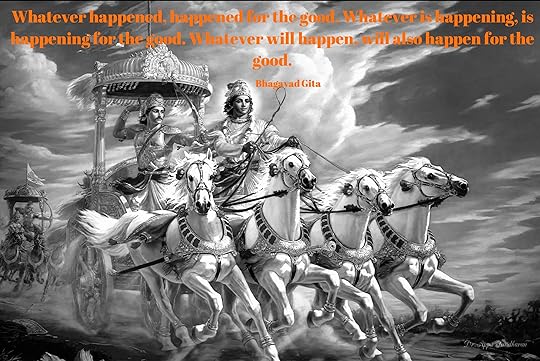What do you think?
Rate this book


644 pages, Hardcover
First published January 1, 1968

"Thoughts lead on to purposes; purposes go forth in action; actions form habits; habits decide character; and character fixes our destiny."
Whenever and wherever there is a decline in religious practice, and a predominant rise of irreligion--at that time I descend myself.And compare Psalm 14:1 from the Bible with the text 7.15 in the Bhagavad-gita:
To deliver the pious and annihilate the miscreants, as well as to reestablish the principles of religion, I Myself appear, millennium after millennium.
The fool hath said in his heart, There is no God. They are corrupt, they have done abominable works, there is none that doeth good.Text 7.15,
Those miscreants who are grossly foolish, who are lowest among mankind, whose knowledge is stolen by illusion, and who partake of the atheistic nature of demons do not surrender unto me.I don't know why I was so surprised that Hinduism has the same deplorable problems with non-believers; all religions seem to have a terrible record when it comes to dehumanizing the wholly other. The similarities between text 7.15 and Psalm 14:1 are pretty striking, to me at least.
either you will be killed on the battlefield and attain the heavenly planets, or you will conquer and enjoy the earthly kingdom. Therefore, get up with determination and fight.That exact line of reasoning has persuaded and impelled men and women to commit shameful acts beyond description throughout our history. Voltaire may have been thinking of verses like this when he wrote, "He who can make you believe absurdities can make you commit atrocities."
